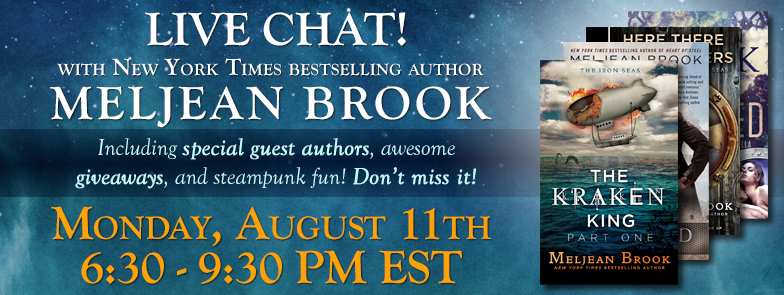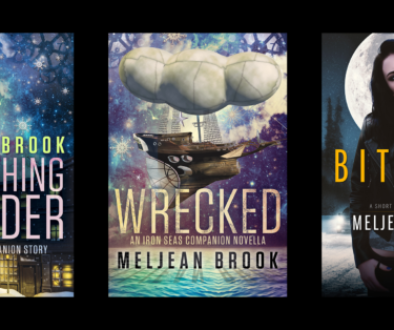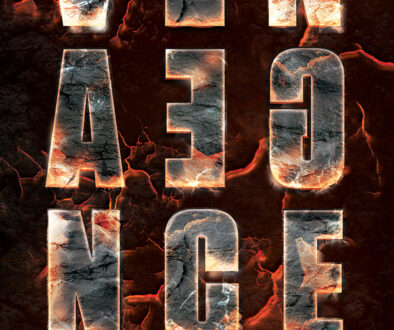Live Chat + Two Books and author insertion
Live Chat
First! Next week (Monday, August 11th from 6:30 – 9:30 Eastern) the awesome Jen Frederick is hosting a chat featuring…me! I’ll be chatting along with special guests Bec McMaster, Delilah Dawson, Karina Cooper, and Kristen Callihan, giving away prizes, and generally being my dorky self. Here is the event link: https://www.facebook.com/events/1446844262249512/ and the groovy graphic:

I hope you’ll show up! I’ll add more details and links to the chat on Monday.
Two Books and Author Insertion
In the past week, I’ve read Stephen King’s Mr. Mercedes and Robert Galbraith’s (J.K. Rowling’s) The Silkworm. I liked both books a lot, but they both made me think about author insertion in different ways.
One thing that I’ve always liked about King’s work is the little Easter eggs he plants all over the place. Someone in a short story will be driving through Derry and see a clown, that sort of thing, or characters like Flagg show up as villains in different stories. All of horror novels feel kind of connected in the same literary universe…but Mr. Mercedes seems a little different, in that it takes place in our world rather than the King universe.
Anyway, at a few points, King makes little references to a possessed car (Christine) and a clown (It) — and had it been any other writer, it really would have been nothing more than a pop culture reference. But King is referring to his own work, of course, so it’s almost like an Easter egg but not quite.
I’ll admit — usually, this would piss me off. Sometimes when reading books, there will be a character reading a real book by some author, and thanks to the joys of social media, I happen to know that the authors are friends or something. Or even worse, the author inserts her own work. NOTHING jolts me out of a story faster than that. Seriously. I get irritated because it feels as if the author has sacrificed character and story to indulge in that moment of real-life insertion.
(And, yes, I totally get that this kind of thing can be an in-joke, or a fun little nod to a friend, and that the character might actually be a fan of that book. It might be a sweet gesture by the author. It doesn’t matter. I always feel as if, in that moment, I’ve been cheated, because something outside the story became more important than the story itself, and I just don’t trust the author as much anymore. That’s why, for the most part, I kind of don’t want to know too much about authors’ personal lives. Because the stuff I know sneaks in and then BAM! I’m not reading about characters anymore, but an author, and I didn’t sign up for that.)
In the case of Stephen King’s work, though … it feels a little different. Because his work is an inescapable part of pop culture, and I feel that there are two ways to approach that: to pretend it doesn’t exist, or to give a little nod. Like, if he was writing a book about kids going to prom and a character mentioned Carrie, I could absolutely believe that a character really did.
I usually think of this in terms of comic books. Superman is a part of pop culture. Batman is, too. But in-universe, these guys are growing up WITHOUT a Superman movie (then Superman II, III, VI, the reboot, then the other reboot) playing in the background. So there are substitutions in-universe. Bruce Wayne might have read comic books growing up, but instead of Batman, it’s the Gray Ghost.
It’s an odd problem to get around. What do you do when your work is so big that it’s part of pop culture, and to pretend that it doesn’t exist means that your setting (and its history) formed in a different way and without those references? It would be like George Lucas writing a book with a character investigating the murder of a guy named Darth Jones, set it in real-world 2014, and no one in the book ever comments on his name.
So if Robert Galbraith ever has Cormoran Strike come across a kid reading Harry Potter, I probably won’t throw the book. Because lots of kids really do read Harry Potter. Or if someone is described wearing Harry Potter glasses. Because I’ve seen that description a hundred times. It’s a recognizable thing.
If I know something personal about an author and it shows up, it’s hard for me to get past. If it’s something commonly known and part of pop culture, though? I guess I’m a lot more forgiving.
But that’s just as a reader.
Reading about writers when you’re a writer
Anyway, the plot of The Silkworm involved a writer and the literary community that surrounded him. Characters mentioned things like indie publishing, self-publishing, ebooks, romance novelists, reactions to reviews, and so on. All of it felt genuine to the characters who were speaking (and it’s not like I’m buddies with JKR, so I had no way of knowing whether any of these opinions were hers or not, which made it a lot easier to read them as the characters’) so everything below is not a comment on the book or its quality, but just some stuff that I was thinking of as I read it.
I have a difficult time reading about writers. (And a hard time WRITING them — a part of me didn’t want to write Zenobia as a heroine, because although I really loved her character, I don’t really like reading romances about authors, because the line between writer/character so often feels so thin. So I was all … unnnnnnngh.) I have an easier time reading about writer-characters in other genres, but there’s always still that unnnnnngh factor of “I hope I don’t find out anything about this author that makes me think they were writing about themselves.”
They say “write what you know” or whatever, but I imagine this is a problem for anyone who works in a certain field and then reads about a character in that same field, whether it’s a writer, chef, lawyer, and so on. If you know that the author is ALSO from the same profession, I think it’s natural (and hard not) to wonder how much of real-life is bleeding through.
Which can be both good and bad. The authenticity is good. Anything that takes you out of the story is bad (to me, anyway).
I don’t know what I’m going on about now. I guess, when it comes down to it, this is just a general plea to all writers: please don’t make the outside stuff more important than the stuff in the story. If it doesn’t fit the characters, please don’t add it, no matter how desperately you want to say it.
That’s what blogs are for.



